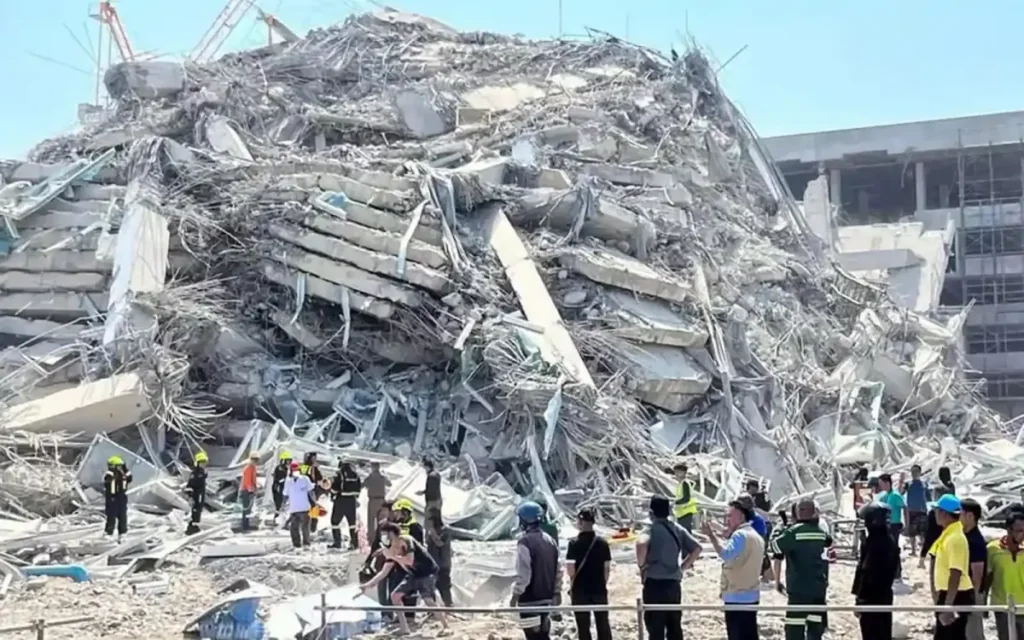
YANGON, April 2 (Bernama-WAM) — United Nations officials have voiced concerns about a potential health crisis in Myanmar after last Friday’s powerful 7.7-magnitude earthquake, which resulted in thousands of deaths, injuries, or missing persons, Emirates News Agency (WAM) reported.
The World Health Organisation (WHO) Representative in Myanmar Dr Fernando Thushara reported dwindling medical supplies, power disruptions in hospitals, and shortages of running water.
He also warned that fuel shortages were affecting power generators, further straining health facilities.
“A lack of fresh water and sanitation could lead to outbreaks of infectious diseases unless we act swiftly to contain them,” Dr Thushara said.
Head of the UN Office for the Coordination of Humanitarian Affairs (OCHA) Tom Fletcher stressed that the response has been severely hindered by a lack of funding, in addition to extensive damage to infrastructure.
Deputy Representative of the UN Children’s Fund (UNICEF) in Myanmar Julia Rees said the needs on the ground were escalating by the hour.
“Entire communities have been flattened,” she noted, adding that children and families were sleeping in the open with no homes to return to.
“The window for lifesaving response is closing,” she warned, as families across the affected areas face severe shortages of clean water, food and medical supplies. Aid efforts remain extremely difficult, with teams operating without electricity or sanitation, and sleeping outdoors alongside the communities they serve.
Meanwhile, in a statement, UNICEF in Malaysia is appealing for RM1 million in response to the devastating 7.7-magnitude earthquake that struck Myanmar on 28 March, exacerbating an already dire humanitarian situation.
According to the statement, UNICEF teams are on the ground in the hardest-hit areas, working with partners and local responders to assess needs and deliver emergency assistance.
“UNICEF has delivered pre-positioned WASH supplies for at least 15,000 households and Inter-Agency Emergency Health Kits covering 1.4 million people, including children under five and pregnant women, for a period of three months.
“Children are among the most affected-facing heightened risks of injury, trauma, separation from their families, and further disruption to what little stability they had,” the agency said.
UNICEF is calling for urgent funding to scale up the delivery of life-saving support to children and families affected by the earthquake, including clean water, medical care, protection, psychosocial support, and emergency education.
— BERNAMA-WAM